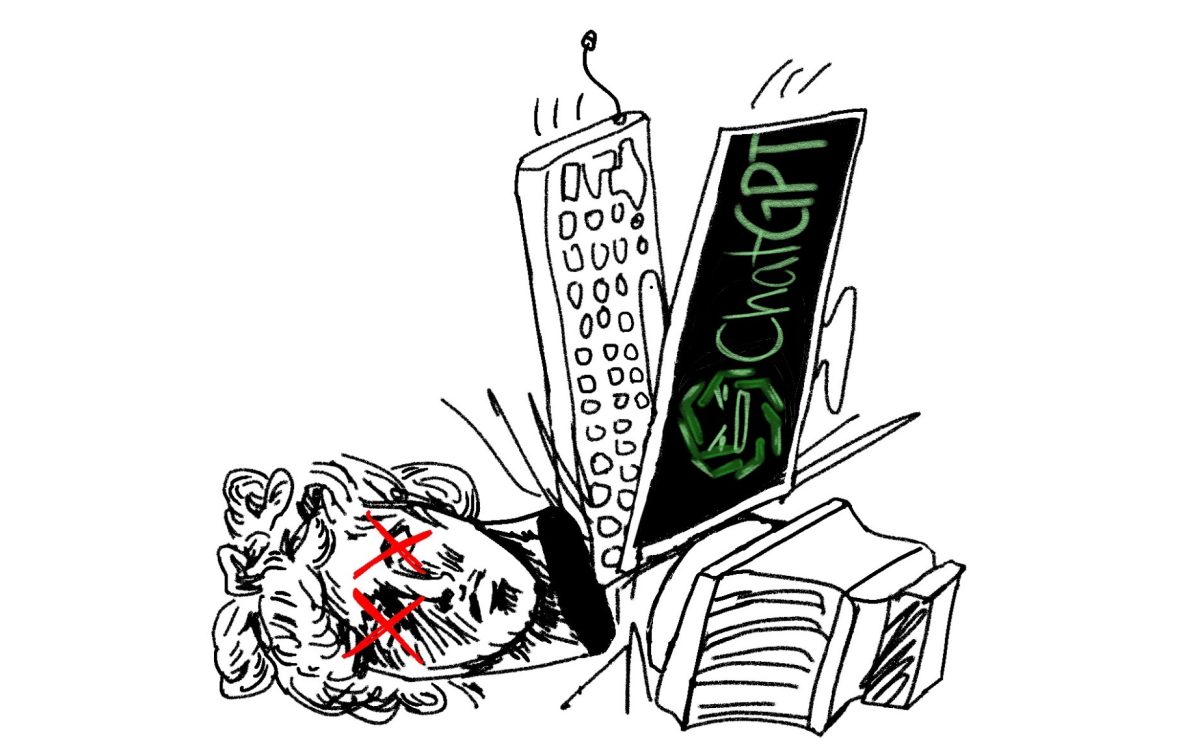By Caroline Weinberg
Let’s set the scene. A teacher returns home after a long day at school. He or she turns on his or her computer, ready to grade tests and assignments, but is instead bombarded with emails from students and parents containing complaints and pleas regarding grades.
No, this hasn’t happened yet, but it very well could if the Parent Portal Grade Book is installed as a school-wide program. Though its ability to bridge the gap between school and home offers appealing benefits, it impedes students’ development of responsibility, places unnecessary stress on teachers, overly emphasizes grades, and provides no solutions to problems that can’t be solved in other ways.
Grade Book could slow the growth of responsibility that high school normally fosters. Without Grade Book, students who wish to monitor their grades must keep track of their grades. This encourages organization and conscientiousness. Many teachers support this, and some even provide charts on which to record grades. Though Grade Book could make students’ jobs easier by automatically listing their grades, it would fail to challenge them to mature.
Grade Book could also negatively impact teachers. The easy accessibility of grades via electronics might encourage students and parents to respond via electronics—seeing an imperfection on Grade Book could prompt dissatisfied people to reach out to teachers in unproductive manners. While receiving grades in context—grades accompanied by comments, correct answers, or suggestions—facilitates useful discussion, receiving ‘empty’ grades could instead promote complaining.
This brings up another important drawback of Grade Book: it strongly emphasizes grades. Grade Book is aptly named. It lists homework grades, assignment grades, and writing grades. It shows test grades, quiz grades, and presentation grades, too. In fact, it presents a grade for just about every school-related action that students complete. Though grades are doubtlessly important, Grade Book unduly highlights grades as the primary focus of school. Grades represent the extent of students’ knowledge in designated subject areas, but they don’t encompass the full picture of the students’ learning experiences. Reviewing grades in class allows for a more holistic reflection on these experiences.
Grade Book could bolster communication; however, communication can also be encouraged through other more constructive venues such as Edmodo or email services. Edmodo provides a place for communication between individual students and the rest of their class, between individual students and their teachers, or between entire classes and their teachers. Email can be used to achieve communication between individual students and their teachers or even between parents and teachers. As both of these systems were designed specifically for communication, they are more conducive for that purpose than Grade Book is.
While Grade Book attempts to compile services like communication and grade keeping into one school-specific program, other solutions are often more favorable. Grade Book’s negative aspects, too, are a source for concern. It could inhibit students’ character growth by denying them practice with diligence, place teachers in uncomfortable situations by providing students and parents with a channel for discontentment, and misconstrue the motivation for education. It’s just not worth it.
Pulling the Plug on Parent Portal Grade Book
March 30, 2012
















